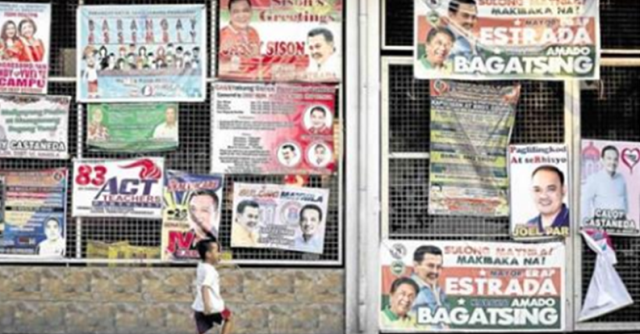Limited Choices: Media on Unopposed Candidates

CHEERS TO the Philippine Daily Inquirer and Rappler for reporting on the number of unopposed candidates for local posts, again shedding light on a phenomenon common during Philippine elections, which effectively perverts the democratic purpose of elections.
The Inquirer reported on March 29 a total of 414 unopposed candidates, six of whom are running for governor, 11 for vice governor, 159 for mayor, 211 for vice mayor and 27 as district representatives.
The Inquirer also reported on the unopposed candidates in Regions I (Ilocos Region) and III (Central Luzon), naming the towns where local candidates are unchallenged. The report said that 61 unopposed candidates are running for posts in the Ilocos region.
For its part, Rappler reported on March 30 that around 43,000 candidates are vying for nearly 18,000 local posts. Rappler also reported that there are 34 unopposed candidates for seats in the House of Representatives.
Reports during the campaign period often merely follow the campaign trail, with a tendency to focus on the candidates running for national posts. These reports by the Inquirer and Rappler are welcome efforts to promote awareness on the electorate’s lack of options at the local level. But media must follow-up with insights on the prevalence of this phenomenon to help the public understand that the absence of choices during elections undermines Philippine democracy.
Equally important is the need to look at how the political dynasties field sons, daughters, wives or other relations, which in effect leaves the electorate in those areas where they reign with no real option. Reports have described familial contests in some cities such as Makati, where a son of former vice president Jejomar Binay is running against his sister; and in Taguig, where former senator Alan Peter Cayetano and his wife are running in two congressional districts. The press must look into how these phenomena limit the electorate’s choices, having to choose candidates from the same dynasties, which in effect makes a mockery of democratic choice.
This makes the passage of an anti-dynasty law, which politicians have resisted, urgent. Clearly, should these unchallenged candidates win, there is little chance of such a law coming out of the next Congress.
Leave a Reply